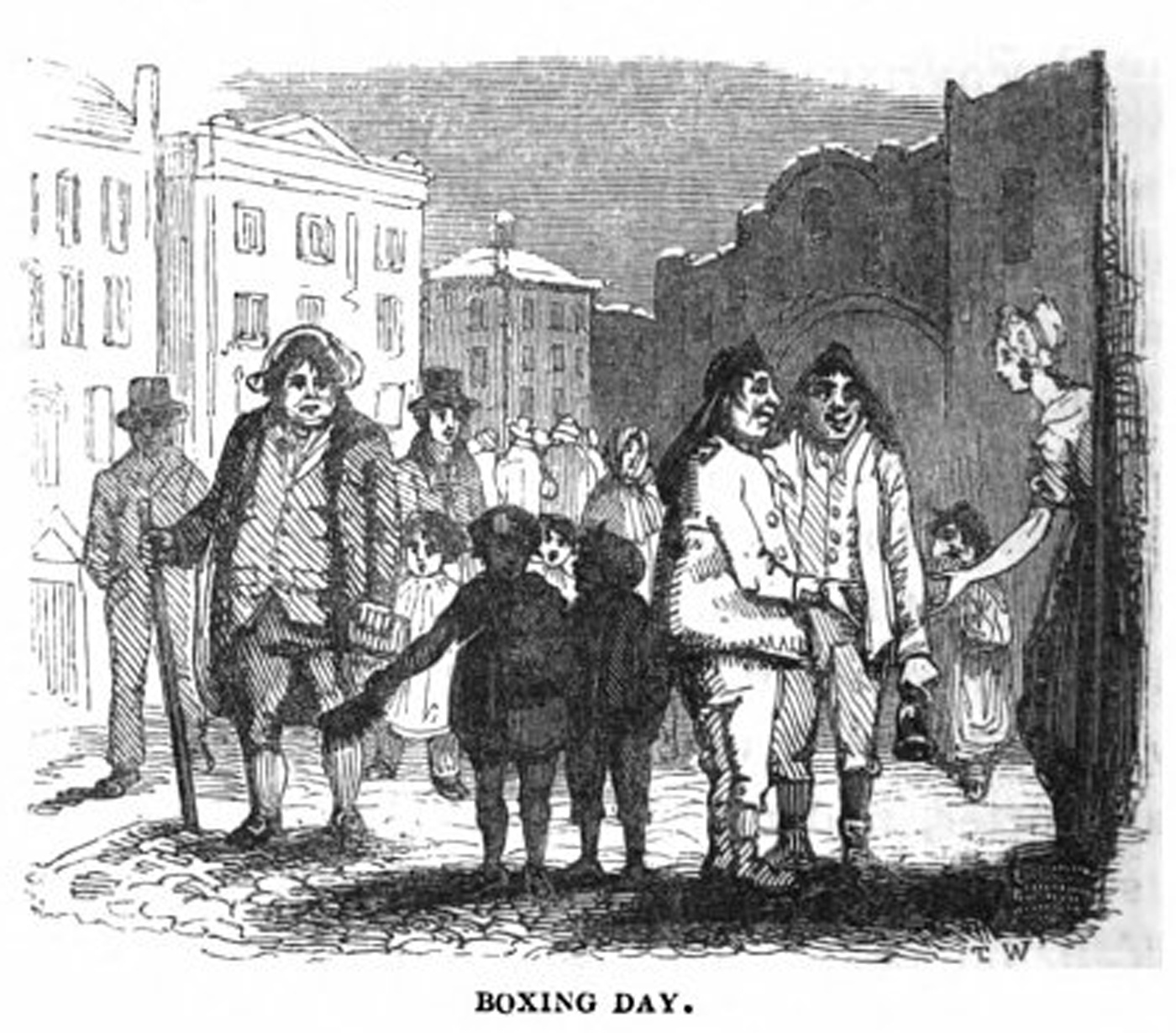The confusing Origins of Boxing Day

Some suggest that the origins of Boxing Day can be found during the Victorian Era, but it appears to have begun much earlier.
“Good King Wenceslas Looked Out On The Feast Of Stephen”
The traditional Christmas carol “Good King Wenceslas” points us to a 10th century start to the Boxing Day tradition. Wenceslas, a 10th century Bohemian Duke, surveyed his land on St. Stephen’s Day (Dec. 26) and saw a peasant gathering wood in the middle of a snowstorm. Moved with compassion, Wenceslas collected food and wine from his own stores and took them through the storm to the peasant’s home. His charitable deed became associated with St. Stephan’s day, making it a day for acts of charity toward the needy.
Medieval Connections to Boxing Day
During the Middle Ages, churches maintained collection boxes for the poor. By tradition, these boxes were opened and the contents distributed to the poor on the feast of St. Stephen, the first Christian martyr. The association with the alms boxes may have led to the appellation, Boxing Day.
I recently found a new bit of information on the Christmas box:
To protect ships
During the Age of Exploration, when great sailing ships were setting off to discover new land, A Christmas Box was used as a good luck device. It was a small container placed on each ship while it was still in port. It was put there by a priest, and those crewmen who wanted to ensure a safe return would drop money into the box. It was then sealed up and kept on board for the entire voyage. © copyright of projectbritain.com
If the ship came home safely, the box was handed over to the priest in the exchange for the saying of a Mass of thanks for the success of the voyage. The Priest would keep the box sealed until Christmas when he would open it to share the contents with the poor.
Project Britain British Christmas Traditions by Mandy Barrow http://projectbritain.com/Xmas/boxingday.html
Boxing Day in the Georgian Era

Giving ‘Christmas Boxes’ to charity and servants was the custom on St Stephen’s Day, now called Boxing Day. The well-off were expected to be particularly generous. Old clothing and extra items were boxed up and handed out to servants and tradesmen who visited that day.
One of the earliest records of these box gifts dates from 1663. In an entry in his diary, English Parliamentarian Samuel Pepys made one of the earliest record of these gift boxes. In his 1663 diary, he wrote aoubt senind a messenger to his shoemaker to deliver “something to the boys’ box against Christmas”.
Servants were often given the day off to celebrate Christmas with their families since their well-off employers required their service on Christmas Day.
A second St. Stephen, a 9th century martyr and patron saint of horses gave rise to another Boxing Day tradition, horse racing and fox hunting. By the early 19th century, Boxing Day had becomea day of outdoor activity.
While Christmas Day was about being at home with your family, Boxing Day was a time to get outside, to get away from the home. “People can only be cooped up for so long!” says Connelly. “There’s always been a need to exorcise – and exercise – all of that.”
Boxing Day also saw the start of Christmastide pantos. Rather than marking the end of the holiday season as we might consider it, Boxing Day started the festivities that would culminate on Twelfth Night.
Boxing Day Food
Since Boxing Day was traditioinally a day off for the servants, including the cook, leftovers from the Christmas feast were usually served.
Read a scene of Boxing Day Charity here.
If you enjoyed this post you might also enjoy:

Thanks for these fascinating historical tidbits, Maria Grace! Your blog is always so informative. Happy New Year! Best, Christina
Interesting to read the history of Boxing Day. Our church collects for a local food bank all year long and personal care items for seniors, i.e., lotion at Christmas plus has a “giving tree” where you select a child’s name which has his/her wish for Christmas. Thanks for your research and sharing.